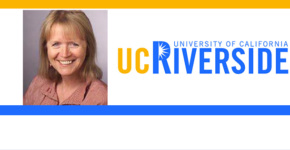Monthly Archive:: February 2017

David Yamane, Wake Forest University – Religion & Guns
It is often said that people cling to their guns and their religion. David Yamane, professor
28/2/2017
0

Isabel Gauthier, Vanderbilt University – Sex Differences in Facial Recognition
Women outperform men when it comes recognizing faces. Isabel Gauthier, Professor of Radiology and Radiological Sciences
27/2/2017
0

This Week On The Academic Minute (2017.2.27)
This Week on The Academic Minute 2017.2.27 Monday, February 27th Isabel Gauthier of Vanderbilt University determines
26/2/2017
0

The Academic Minute for 2017.2.20-2.24
Academic Minute from 2.20 – 2.24 Monday, February 20th Christopher Salas-Wright – University of Texas at
25/2/2017
0

Joel Cohen, University of Chicago – Tornado Outbreaks
Are more tornadoes occurring than ever before? Joel Cohen, Visiting Scholar in the Department of Statistics
24/2/2017
0

Matt Fotis featured on The Best of Our Knowledge
As always, host Bob Barrett selects an Academic Minute to air during The Best of Our
23/2/2017
0

Ameae Walker, University of California Riverside – Vaccinating Babies Against Tuberculosis
How do you better vaccinate a newborn against tuberculosis? Ameae Walker, professor of biomedical sciences at
23/2/2017
0

Matthew DeLisi, Iowa State University – Homicidal Ideation
To understand why some commit crimes, get inside their head. Matthew DeLisi, professor in the department
22/2/2017
0

Peggy Albers, Georgia State University – Children & Stories
Children love stories, but need hear them told from various perspectives. Peggy Albers, professor of language
21/2/2017
0

Christopher Salas-Wright, University of Texas at Austin – Immigrant Mischaraterization
Are immigrants wrongly portrayed as being criminals in the public sphere? Christopher Salas-Wright, assistant professor in
20/2/2017
1
